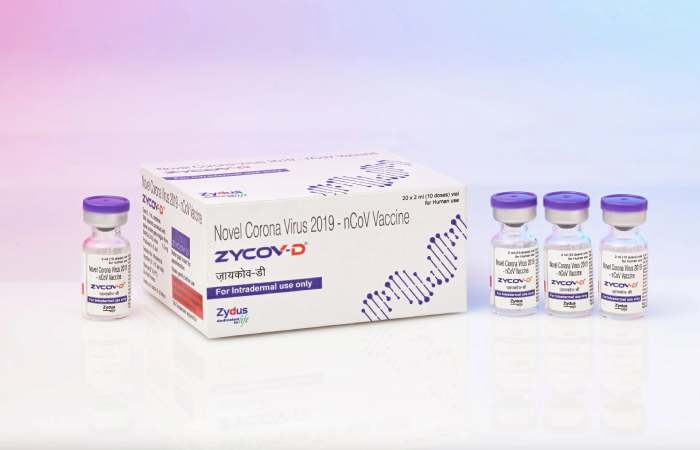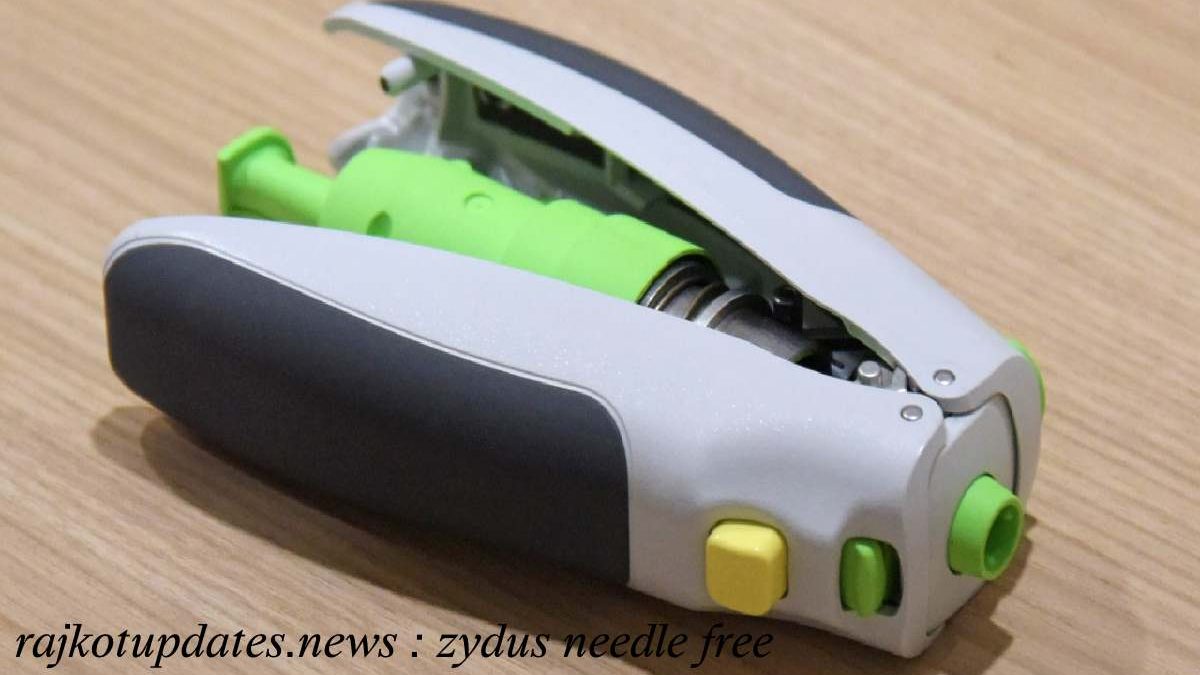Table of Contents
rajkotupdates.news : zydus needle free corona vaccine zycov d
Zydus Cadila, an Indian pharmaceutical company, has developed a needle-free COVID-19 vaccine called ZyCoV-D. The vaccine is administered using a painless, needle-free applicator called PharmaJet.
ZyCoV-D is a live, attenuated virus vaccine that is made from a weakened version of the SARS-CoV-2 virus. The vaccine is designed to stimulate the body’s immune system to produce antibodies that can protect against the virus.
ZyCoV-D has been given away to be safe and real in clinical trials. In a phase 3 trial, the vaccine was found to be 66.6% effective in preventing symptomatic COVID-19 infection. The vaccine was also found to be safe and well-tolerated, with the most common side effects being mild and transient.
ZyCoV-D is the first needle-free COVID-19 vaccine to be developed in India. The vaccine is currently being manufactured at Zydus Cadila’s vaccine manufacturing facility in Ahmedabad, Gujarat.
The company has already started supplying the vaccine to the Government of India. The vaccine is expected to be made available to the public in the coming months.
Here are some of the key benefits of ZyCoV-D:
- It is a needle-free vaccine, which makes it more convenient and less painful to administer.
- It is a live, attenuated virus vaccine, which means that it can induce a strong immune response.
- It has stood shown to be safe and actual in clinical trials.
- It is manufactured in India, which makes it more affordable than some other COVID-19 vaccines.
ZyCoV-D is a promising new vaccine that has the potential to help India and other countries in their fight against COVID-19.
What is the ZyCoV-D COVID19 Vaccine

ZyCoV-D is a DNA plasmid-based COVID-19 vaccine developed by Indian pharmaceutical company Cadila Healthcare, with support from the Biotechnology Industry Research Assistance Council. It is approved for emergency use in India.
Technology. The vaccine contains a DNA plasmid vector that carries the gene encoding the spike protein of SARS-CoV-2. As with other DNA vaccines, the recipient’s cells then produce the spike protein, eliciting a protective immune response. The plasmid also contains unmethylated CpG motifs to enhance its immunostimulatory properties. The plasmid is produced using E. coli cells. The vaccine is given as an intradermal injection using a spring-powered jet injector.
ZyCoV-D is a three-dose vaccine. The first two doses are given 28 days apart, and the third dose is given 56 days after the first dose.
ZyCoV-D has been made known to be safe and actual in clinical trials. In a phase 3 trial, the vaccine was found to be 66.6% effective in preventing symptomatic COVID-19 infection. The vaccine was also found to be safe and well-tolerated, with the most common side effects being mild and transient.
ZyCoV-D is the first DNA plasmid-based COVID-19 vaccine to be approved for emergency use. It is a promising new vaccine that has the potential to help India and other countries in their fight against COVID-19.
How is The Vaccine Administered Needle Free?
ZyCoV-D is administered using a needle-free applicator called PharmaJet. The applicator uses a high-pressure stream of liquid to deliver the vaccine into the dermis, the middle layer of skin. This method of administration is painless and does not require a needle.
The PharmaJet applicator is a spring-powered device that contains a cartridge of vaccine. The cartridge is inserted into the applicator and the device is then held against the skin. The user presses a button on the applicator, which releases a high-pressure stream of liquid that delivers the vaccine into the dermis.
The needle-free administration of ZyCoV-D makes it a more convenient and less painful option for vaccination. It is also a safer option, as there is no risk of needlestick injuries.
Here are some of the benefits of needle-free vaccination:
- It is more convenient and less painful for the recipient.
- It is safer for the healthcare worker, as there is no risk of needlestick injuries.
- It is more efficient, as it can be administered more quickly.
- It is more cost-effective, as it requires less training and equipment.
Needle-free vaccination is a promising new technology that has the potential to make vaccination more accessible and affordable for people around the world.
Authorizations
Authorization is the process of determining who can access what resources. It is a critical part of information security, as it helps to protect sensitive data from unauthorized access.
There are two main types of authorization:
- Role-based access control (RBAC): RBAC assigns permissions to users based on their role in the organization. For example, all employees in the sales department may be given permission to access the sales database.
- Attribute-based access control (ABAC): ABAC assigns permissions to users based on their attributes, such as their job title, department, or location. For example, all employees who are in the United States may be given permission to access the company’s website.
Authorization can be implemented in a variety of ways, including:
- Access control lists (ACLs): ACLs are lists of permissions that are associated with a resource. For example, an ACL on a file may specify that only users in the sales department can read the file.
- Web application firewalls (WAFs): WAFs are devices that filter traffic to and from a web application. They can be used to block unauthorized access to resources.
- Identity and access management (IAM) systems: IAM systems provide a centralized way to manage user identities and permissions. They can be use to automate the authorization process and to make it more difficult for unauthorize users to access resources.
- Authorization is an important part of information security. By implementing effective authorization controls, organizations can help to protect their sensitive data from unauthorized access.
Here are some of the benefits of authorization:
- It helps to protect sensitive data from unauthorized access.
- It helps to ensure that only authorized users can access resources.
- It helps to prevent unauthorized users from making changes to data or systems.
- It helps to reduce the risk of data breaches and other security incidents.
Authorization is a critical part of any organization’s information security program. By implementing effective authorization controls, organizations can help to protect their sensitive data and systems from unauthorized access.
Conclusion
rajkotupdates.news : zydus needle free corona vaccine zycov d – authorization is a critical part of information security. It is the process of determining who can access what resources, and it helps to protect sensitive data from unauthorized access. There are two main types of authorization: role-based access control (RBAC) and attribute-based access control (ABAC). RBAC assigns permissions to users founded on their role in the organization, while ABAC assigns permissions to users based on their attributes, such as their job title, department, or location. Authorization can be implemente in a variety of ways, including access control lists (ACLs), web application firewalls (WAFs), and identity and access management (IAM) systems. By implementing effective authorization controls, organizations can help to protect their sensitive data and systems from unauthorized access.

